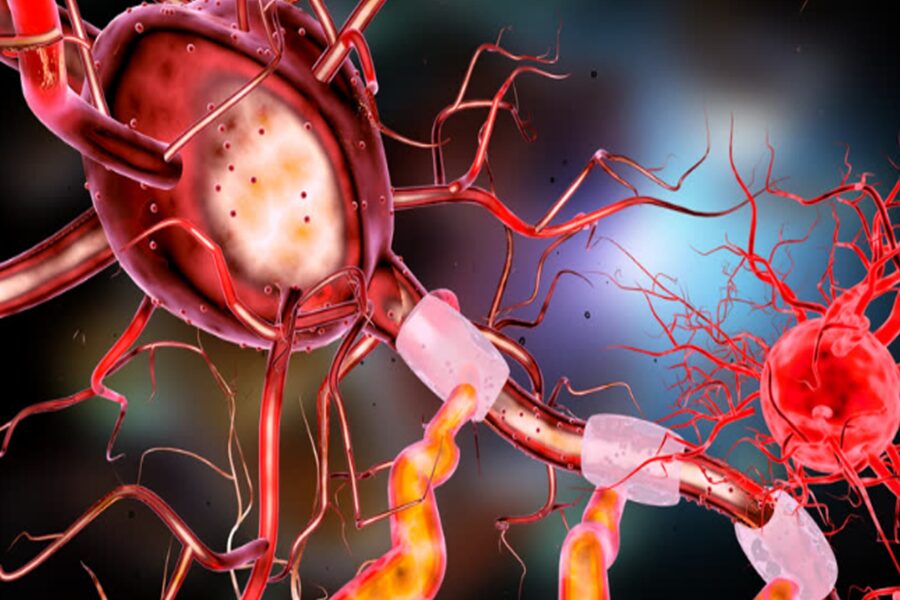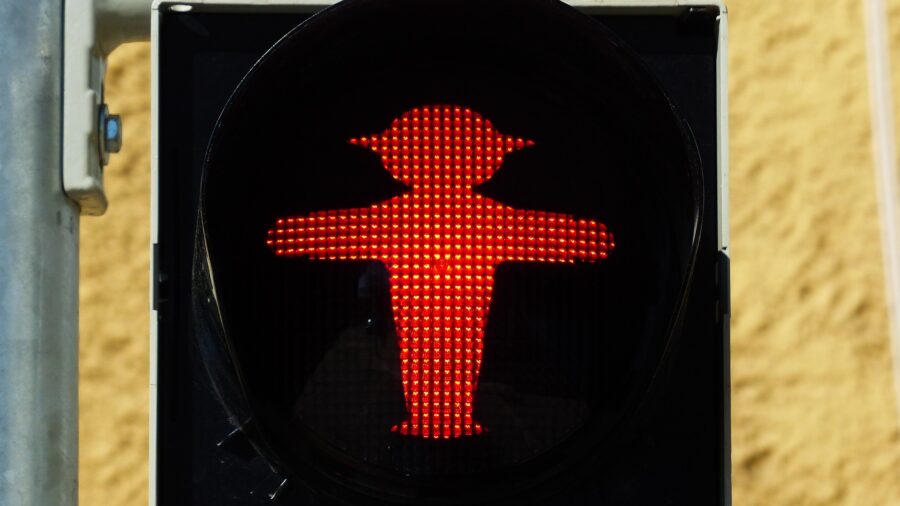
Scientists acquaint this feeling of sadness when you’re watching movies as an indicator of emotional intelligence [1]. Rather than feeling embarrassed and hiding this fact about yourself, it should be celebrated.
But do these feelings of sadness have a deeper meaning than purely being empathetic?
The reason I’m exploring this question is that this ‘empathetic” experience has been quite intense for me recently. Now, I don’t mind telling you that I often feel sad watching movies. I even cry – even when they’re not particularly sad.
Seriously, sometimes one character does something nice for his mate and it moves me.
That begs another question: why am I moved by acts of kindness?
Psychology says kindness is a selfless response that places compassion for others before one’s own interests. Being moved by witnessing human kindness is known as “moral elevation.”
And there is a direct link here between sadness and kindness. It seems to be coming from the same source – the root emotion of love.
A 2015 study [2] linked moral elevation with high levels of altruism – the need to protect people that are in need of help. Neuroimaging showed that watching videos which feature acts of kindness activates the parasympathetic nervous system (PNS) and the sympathetic nervous system (SNS).
This is interesting because it’s rare that both nervous systems are activated at the same time. The PNS is a self-soothing system that sends you into a state of relaxation. The SNS, on the other hand, is where the famed fight-flight-freeze response lights up in stressful situations.

The PNS and the SNS are opposing forces [3] — they are to supposed to work together.
Researchers concluded that witnessing a compassionate act instinctively triggers the stress response because we recognise a person has a problem. But the act of kindness triggers the PNS which “calms our heart”. And that is when the tear ducts open.
So the PNS and SNS don’t actually work together, they belong to the same system of emotional processing at different stages of the process.
Crying is the relief from stress.
But that doesn’t explain why I feel sad watching movies.
Sadness is an emotional state that is associated with a source of pain. It is thought that sadness emerges because we are devoid of “any real love, meaning or truth.”[4]
So you could say that sadness is a result of a lack of love or emotional well-being, a lack of connection in relationships or interests you are passionate about. Feelings of rejection and abandonment are typically sources.
On the flip side, researchers have shown that acts of kindness are good for emotional well-being [5]. And that acts of kindness come from a love-based centre.
That would indicate that people that feel sad watching movies are moved by acts of kindness because that’s what they yearn for in their own lives.

In his insightful book, Freedom, Australian biologist, Jeremy Griffith shows that humans have an innate biological capacity for love, kindness and compassion. This is what a newborn baby instinctively expects to receive.
Griffith argues that the way we live our lives is a counter-balance to what the human condition is actually designed to need. Children, teenagers and adults that do not receive the unconditional love we need to nurture emotional well-being, feel bad, rejected and worthless.
This generates feelings of sadness, loneliness, anger, frustration – and critically, the feeling that you are being criticised (for not being good enough).
The harsh reality is that children that feel they are not loved mature into adults feeling unloved, unworthy and alienated. The resulting personality is what Griffith describes as “a narcissistic power addict” or an individual that is “psychologically crippled.”
We could go much deeper into both types of these personality types but for the sake of brevity, the narcissistic power addict develops the mental attitude that they must win at all costs.
Narcissists have also been shown to lack empathy and altruism [6]. Narcissists probably don’t cry at films.
Individuals that are psychologically crippled are fragments of what they could be. They have no confidence, low self-esteem, and very little if any fight in them.
Children that did not receive the love or emotional support humans are innately designed for, tend to become adults that are thoughtless, inconsiderate and preoccupied with themselves.
Simply put, we are cut off from ourselves to protect ourselves from being utterly consumed by our own pain.
“The child has no choice but to give in to that criticism and conclude that they are indeed worthless and bad. And then, to cope with that terrifying, absolutely unbearable conclusion, all the child can do is determine to never again allow their mind to connect with that conclusion that they are an unlovable, bad person, and since that core issue of their worthiness is where their true self is preoccupied, avoiding that issue amounts to separating or dissociating or splitting off from their true state and thus true self. This is the split, false, psychologically crippled state [most of us struggle with]. If, however, the evidence that they are an unworthy, bad person is immense but not quite overwhelming the child will be stuck in a lifelong battle to avoid surrendering to the psychologically crippling conclusion that they are an unworthy, bad person. And that is where power addict lives – stranded in that state of terrible fear that they are unworthy, fighting with all their might to ‘stay in their feet’ and defy that implication.” [7]
~ Jeremy Griffith, Freedom (p.601-02 par 1008).
The psychiatrist Frank Lake noted that children that felt criticised still feel they are under attack as adults. When we feel the world is against us, we become defensive and – attack back.
This attacking back surfaces as hate or contempt towards others, a self-induced sense of ‘I’m better than you,’ and a false sense of pride built on the premise of material resources.
And there’s yet another division in society which breeds conflict. People with less feel envy and resentment toward people with more.
But the feelings you experience toward the outer world are a reflection of how you relate to your inner world!

The division of mankind is actually the division of the individual psyche expressed outward into the physical world. Logically, the self-absorbed individual will blame anything and anyone other than themselves.
Modern science is showing us why we are breeding hatred. It’s because we have not, or are not, experiencing the love we need to function as healthy, stable and balanced humans.
But what has all this got to do with empathy, kindness and feeling sad watching movies?
So far science has established the psychological trauma we experience during the course of our lives cuts us off from our True Nature or “soul”. I can see how this is true from my own experience.
The fancy word for it is called dissociation.
There are varying degrees of dissociation. The most extreme is dissociative identity disorder in which the individual develops one or more other personalities they have no control over. Carl Jung described this as ego-possession.
“One of the most important changes of internal structure is the phenomenon of possession: some content, an idea or a part of the personality, obtains mastery of the individual for one reason or another. The contents which thus take possession appear as peculiar convictions, idiosyncrasies, stubborn plans, and so forth. As a rule, they are not open to correction….Possession can be formulated as the identity of the ego-personality with a complex.”
~ Carl Jung, The Archetypes and the Collective Unconscious
This can happen in children that experience a tragic trauma such as abuse, or an accident in which the brain shut down in order to protect their emotional well-being.
But you don’t have to be a witness to a major tragedy to experience trauma. The developing child of a brain experiences trauma for the most innocuous of reasons.
Mind.org in the UK says that everybody has some form of disassociation following a trauma. For most of us, it is the trauma of being criticised or reprimanded as a child.
Here we come back to our innate understanding of unconditional love. The first time we do not receive unconditional love as a child it comes as a shock to the system. We experience trauma and consciousness becomes “dissociated” or “split off”.
Like a broken cable, your neurones are not able to process and send all the information it receives. The central nervous system only processes what the brain associates with.

You can see how easy it is for the message that you are loveable, you are worthy can easily get buried in the unconscious.
When you are starved of unconditional love over a prolonged period of time, the program that you are not loveable; you are not worthy of love; you do not belong; you are not good enough etc becomes a concrete reality.
The subconscious then finds ways to validate these feelings; including feeling sad watching movies.
All the above are limiting beliefs, of course – but beliefs all the same. To a child’s undeveloped mind that expects unconditional love, the realisation that they are not worthy of love is a traumatic experience.
Oh yes, this is how easily we are traumatised in childhood. The brain’s way to cope with the stress of realising we are not worthy is to dissociate from the experience.
And this is where the “splitting off” of consciousness [8] begins. As we experience life, this fragmentation can get worse and eventually becomes neurosis. Then psychosis. But it can also be repaired depending on your experiences in life.
My formative experiences in life were one of feeling unloved, unworthy and alienated. This deepened in my teenage years when I also felt criticised and rejected by my peers. At school, I often felt a deep sadness accompanied by a sense of I don’t belong to this group of people.
Sadness is programmed into my subconscious because that is the experience I lived. Even when the experiences we have as children are false truths and limiting beliefs, such as ‘I am unloveable,’ the program becomes imprinted on your subconscious as though it were an actual Truth.
“Everything that has happened to you happened because of thoughts impressed on your subconscious mind through belief.”
~ Dr Joseph Murphy, The Power of Your Subconscious Mind
So this is why I get sad watching movies. I recognise the pain other people experience because of my own unresolved pain.
That’s different to crying at movies because you have empathy. Some empathetic people don’t feel sad watching movies because they are able to regulate their emotions.
Hey, guess what, your subconscious regulates your emotions [9]. So crying and feeling sad when watching movies depends on your programming, and not necessarily a personality trait.

Emotions are typically triggered by whatever you’re experiencing at that moment; but emotions are essentially memories of the past. They are coded in neurones [10] and wired in synapses.
So if you cry at films, you may also be carrying sadness in your subconscious programming as well. Which also probably means you don’t feel loved, worthy or have a sense of belonging.
Somewhere along the line, there has been a disruption to your innate need for love that has never been repaired. The empathy you feel for other people is because that’s how you feel you have been treated.
You’re in pain.
As an adult, I have struggled with my ability to love – even though I am altruistic, empathetic and compassionate, falling in love has been problematic.
Moreover, I don’t fall into the category of a narcissistic power addict nor would I say I am a psychological cripple. So the science of sadness is confusing me, but it makes sense when I relate my condition to subconscious programs.
Having said that I can admit to being both a narcissist (not a power addict) and a psychological cripple. I lived with depression for almost 30 years so maybe there is some residue I haven’t cleared yet. If the science is right.
What I do know is that depression can be the result of a disrupted ability to love. And lack of love breeds sadness. What’s more, a 2020 study[11] found that people with depression choose to be sad as a ‘self-verifying function”.
In other words, the ego identifies with depression as your condition and seeks to find activities to support the way you feel (play sad music, wallow in sad thoughts, curl up in a ball etc). The ego remember is responsible for your emotional survival.

This is subconscious programming at play. Moreover, this is a form of ego-possession; when the ego identifies with unconscious forces it is possession.
Science also shows us that individuals that were raised to feel loved, on the other hand, tend to be emotionally stable, have a strong sense of self-worth and are more inclined to provide acts of kindness without wanting anything in return. This also makes perfect sense.
“So love is cooperative selflessness – and not just selflessness but unconditional selfishness, the capacity, if called upon, to make a full, self-sacrificing commitment to the maintenance of the larger whole…And since love means unconditional selfishness, love is the theme of existence – it is the meaning of life.” [12]
~ Jeremy Griffith, Freedom
Griffith states that infants that receive the love and attention humans innately need are “indoctrinated with unconditionally selfless love, thus allowing it to grow up to behave selflessly.”
Harry Prosen, an eminent psychiatrist and Griffith’s professor, also identified that there is “a need for empathy/love/unconditional selflessness in the lives of highly social mammals and how psychologically devastating the effects are of not receiving it.” [13]
Some of the devastating effects of not receiving love indoctrination are to become aggressive, defensive, angry, frustrated, sad and a spectrum of other unhealthy emotions whenever, we, or rather the ego, feel threatened.
I can relate to these impulses as well – in my narcissistic/psychologically crippled days. They don’t surface much anymore, however. Just sadness when watching movies.
Coincidentally, when I say the ego feels “threatened”, I mean, when the ego feels its emotional survival is at stake. For example, if you choose to change a habit, the ego will resist because that’s not what you normally do to survive the day.

The problem is the ego doesn’t recognise the difference between what is right and what is wrong. It only knows what you have done before – the tasks it is programmed to perform.
Whether you experience happiness or joy or depression and sadness is neither here nor there to the ego. It only knows what you are programmed to feel even if it doesn’t know what the experience of these feelings means to you. In this sense the ego is unconscious.
So what does this mean?
Remember the study that showed empathetic responses are activated by the parasympathetic nervous system and the sympathetic nervous system?
The nervous system is the source of your emotion and thus how you feel.
This shows the ego only knows the information it is fed through the biological process of chemicals that are triggered in relation to the experience you are having at any given moment.
In other words, the ego responds to your subconscious programming which is stored in your central nervous system.
The subconscious mind is the nervous system.
Negative emotions such as sadness, anxiety, anger, depression etc are classified as neuroticism [14]. But a growing body of evidence supports the notion that neuroticism can be treated by adopting a different mindset to life.
This primarily involves learning to regulate your emotions and respond to your environment in a different way. There are many tools you can use for this such as reframing, acceptance and positive self-talk.
An ongoing practice “neurotics” (including myself) have to engage in is nurturing, compassion and self-care. Unconditional love is stymied by our need to prove our self-worth.
However, once you understand that the reason for feeling sad, upset, angry and isolated is because of a simple misunderstanding your childhood brain had all those years ago that resulted in the splitting off of consciousness, it’s easier to overcome the negative emotions programmed in your subconscious.
All you need to do is adopt a different response to your environment. Eventually, your subconscious programs are upgraded with new information…which comes from a different type of neurotransmitter – otherwise known as chemical messengers (because they carry information).
The chemical messenger you want to release to overcome low moods is oxytocin. The neurotransmitter is released during moments of bonding.
Neuroscience shows us that the ‘love hormone’ oxytocin plays a key role in:
“…childbirth, breastfeeding, increasing contractions during labour and stimulating the milk ducts. It is also released in response to positive physical contact – hugging, kissing, sexual intimacy and even petting animals – as well as through positive social interactions.”
~ Jo Adetunji, The Conversation
The 2015 study researching moral elevation mentioned above also pointed towards oxytocin as a signal for altruism describing it as the “tend and befriend” hormone.
A study at Oxford University in the UK also found that shared emotional experiences enhance social bonding. Watching traumatic films arouses your survival instincts – which incidentally depend on social bonding.
And we’re back to the ego’s function as the guardian of your emotional survival.

Oxytocin, therefore, has a critical role to play in the way we feel. It is associated with heightened feelings of empathy and compassion. But oxytocin also surfaces as sadness when you’re watching movies.
Researchers [15] have linked this to traumatic experiences from your past. Oxytocin levels are high under stressful conditions, such as social isolation and unhappy relationships.
If trauma is programmed in your subconscious, your thoughts, actions and emotions are creating the negative events and feelings you experience.
“Every one of our thoughts, good or bad, becomes concrete, materialises, and becomes in short, a reality. We are what we make ourselves and not what circumstances make us.”
~ Emile Coue, Self-Mastery Through Conscious Autosuggestion
The cause of the disturbance could be for any number of reasons. For example, perhaps you were bullied or felt isolated at school, or your older sibling ridiculed you and treated you like a rag doll.
Whatever, the reason for your sadness, you feel this way when you are triggered by events in a film, book or news item. But because it’s part of your subconscious programming, these triggers can be used to instigate your healing process.
When feelings of sadness [16] surface when you’re watching movies, use them to consider why you are still carrying sadness. Negative emotions are a signal for you to pay more attention to what lies behind your emotional responses.
The discoveries of modern medicine reflect the deeper themes of ancient myth. Okay, that’s not an idea that will catch on with everyone, but I’ll give you an example.
In ancient, Homer’s Hymn To Demeter describes the journey of the self reconnecting with the self. The story features the goddess Demeter’s search for her abducted daughter.

Demeter was associated with agriculture in ancient Greece — a symbol of nurturing, regeneration and fertility. She is recognised as a nourishing and nurturing earth mother; the provider and regenerative energy that enables life to flourish.
On a psychological level, the earth mother teaches us the positive effects of unconditional love and emotional well-being are born from taking care of yourself and others – nurturing, nourishing and altruism.
“Nurturing is crucial in producing a sound, functional human.”
~ Jeremy Griffith, Freedom
When Demeter learns of her daughter’s disappearance she is frantic; you might even say neurotic. Throughout Homer’s Hymn To Demeter, we see her descend into worsening conditions of neuroticism; anger, grief, sadness, depression and social withdrawal.
Demeter is only released from her reverie when she is reunited with Persephone. And here’s the kicker. Persephone is identified as Demeter. They represent the same person. In Attica, there is a picture that shows the two women as sisters.
Scholars believe the Hymn To Demeter describes the changing of the seasons, or cycles of life. It actually describes the transformation of consciousness from a state of depression to the positive mental state of a functioning human being.
I have explained the symbolism of Demeter’s journey in this article.
Essentially, the Hymn To Demeter is one of many myths that describe how reconnecting with the Self — or the re-membering of dis-membered consciousness — is the process of healing.
We also find in the Greek myth of Narcissus that narcissism is not an excessive indulgence but the yearning to be loved. It is only when Narcissus sees his reflection in the water (the unconscious), that he recognises the fulfilment of self-love.
Do you want to know more?
References
[1] If you cry while watching movies, it is probably a sign of your emotional strength
[2] Autonomic and prefrontal events during moral elevation; Piper Saslow, Saturn (2015)
[3] Neuroanatomy, Parasympathetic Nervous System; Tindle, Tadi (2022)
[4] Jeremy Griffith, Freedom
[7] Jeremy Griffith, Freedom (p.601-02 par 1008)
[10] Why are Memories Attached to Emotions so Strong? Columbia University Irving Medical Center (2020)
[11] Jeremy Griffith, Freedom (p.187 para 321 and 322)
[12] Ibid (p262 par 456).
[13] Neuroticism and Psychopathology (2001)
[15] Sadness, the Architect of Cognitive Change; (L Levine 2018)
